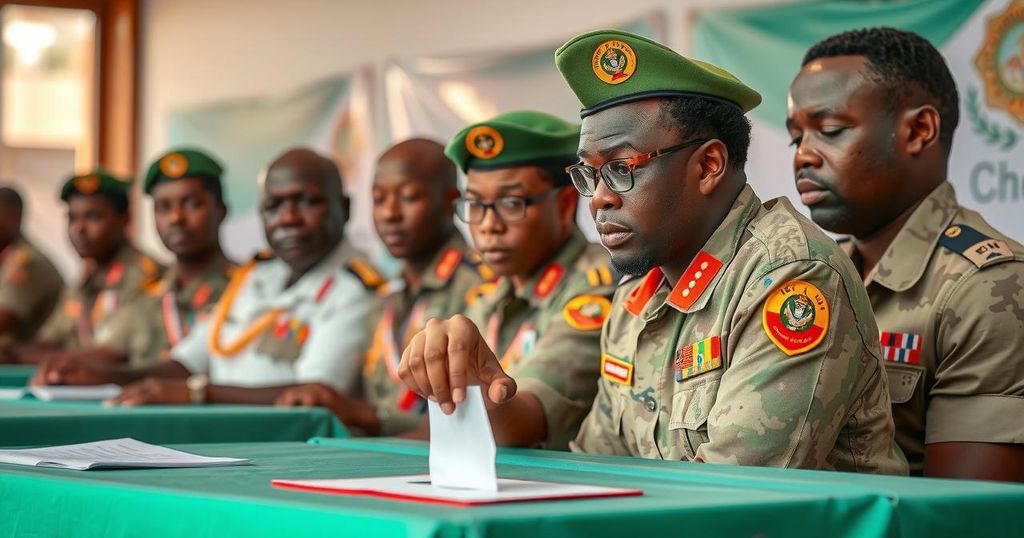Chad’s General Election Marks Potential End to Military Governance
Chad voted in a general election intended to end military rule after three years. Voter turnout was low, estimated at 38 percent, following opposition calls for a boycott. These elections aim to establish a new parliament and local governance structures.
On Sunday, Chad held a general election viewed by the government as essential for transitioning away from three years of military rule. However, the turnout was projected to be low, with opposition groups urging a boycott. Early reports from the elections management agency, ANGE, indicated that only 38 percent of eligible voters participated in choosing representatives for a new parliament, provincial assemblies, and local councils. This low voter engagement raises questions about the legitimacy of the electoral process in light of widespread opposition.
Chad has experienced a significant period of military governance following the death of its long-time leader, Idriss Déby, in April 2021. Since then, a transitional military council has been in place, and the current election represents a critical moment for the nation as it seeks to restore democratic governance. The political climate has been tense, with opposition parties expressing concerns regarding the fairness and transparency of the electoral process, contributing to their calls for a boycott.
In summary, the general election in Chad serves as a pivotal step towards potentially ending military rule; however, the anticipated low voter turnout, influenced by opposition calls for a boycott, raises significant concerns about the democratic process and the representation of the Chadian populace. The government faces challenges ahead as it aims to navigate this transitional period effectively and restore public trust in its electoral systems.
Original Source: www.caledonianrecord.com




Post Comment